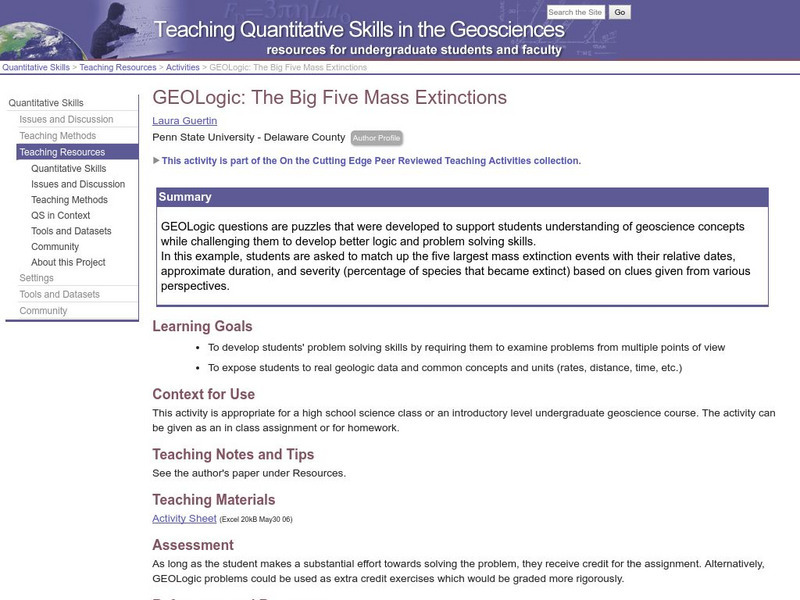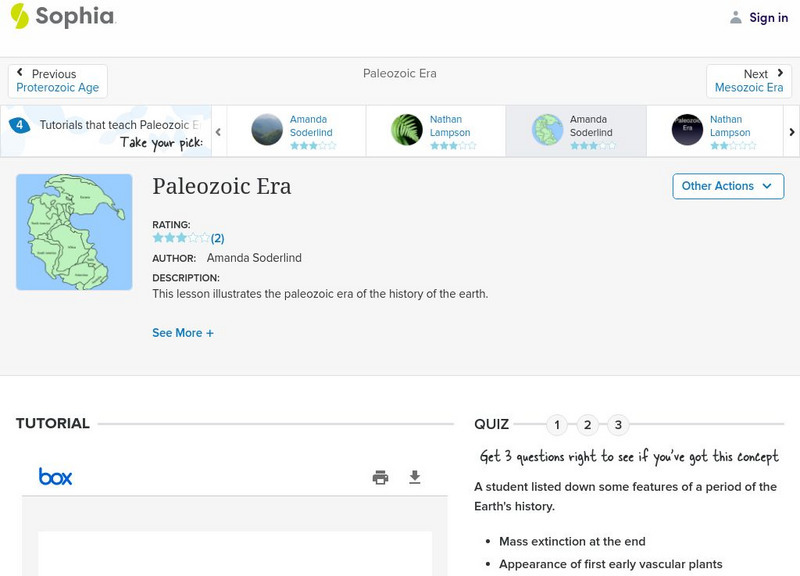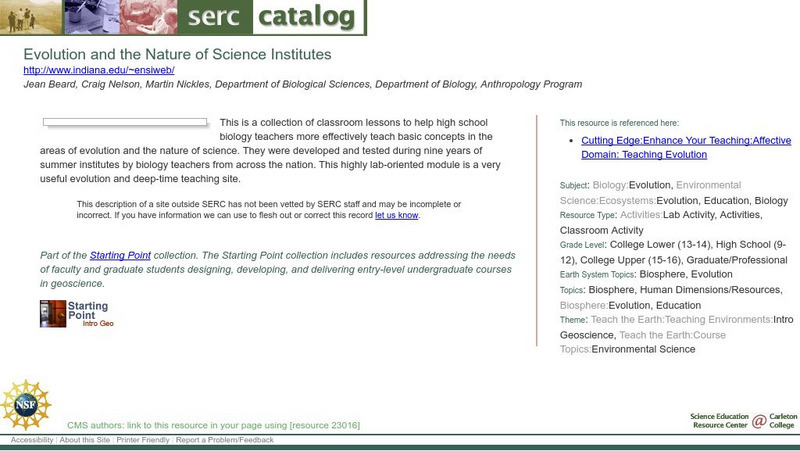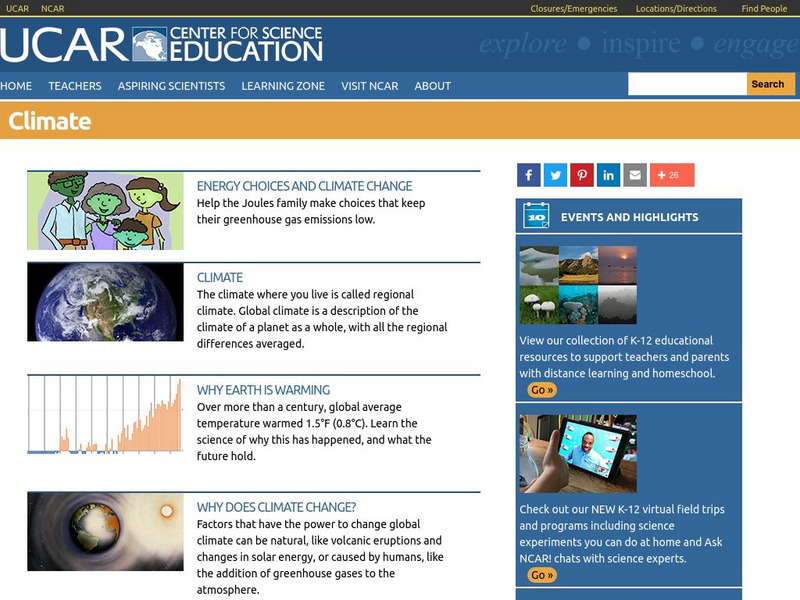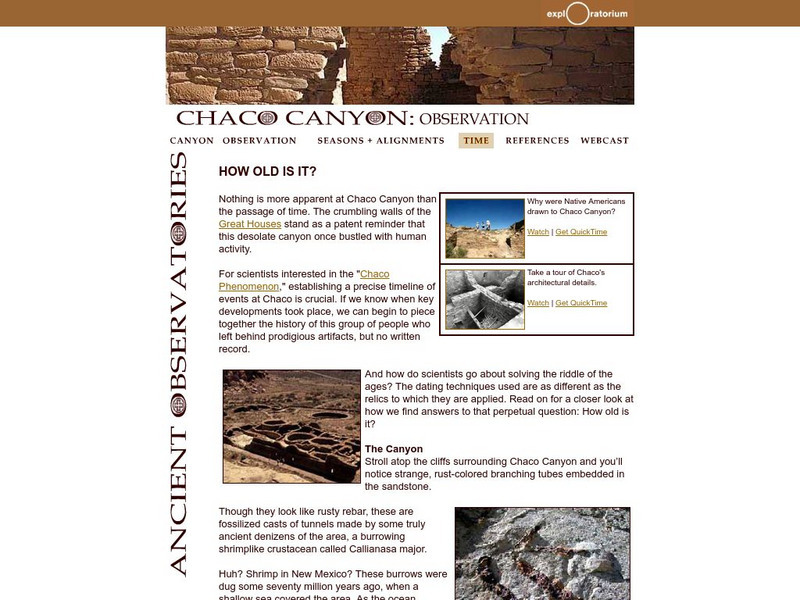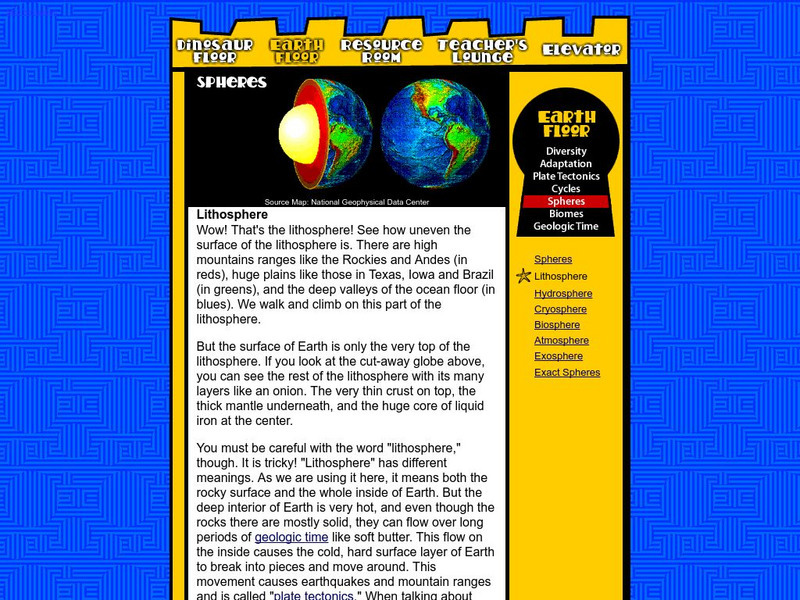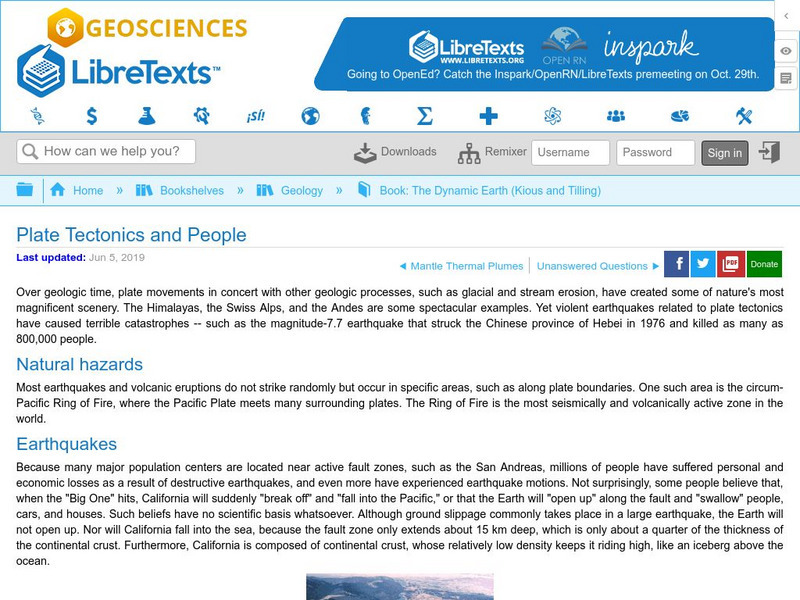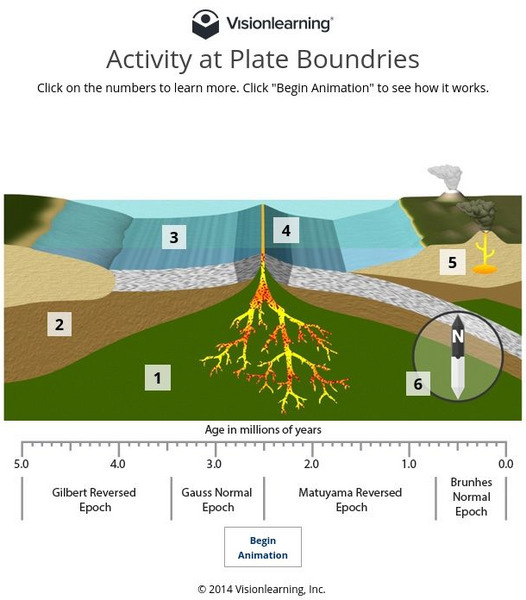US Geological Survey
Usgs: Fossils and Rocks
Part of an online publication offered by the U.S. Geological Survey, this articles sheds light on how studying fossils became an important part of understanding geologic time.
Other
Bio Web Evolution: Homepage
This site from BioWeb Evolution was originally created as a ThinkQuest entry, and it has some good basic information about evolution. This page is on fossils and geologic time.
Other
Prehistoric Planet: Rock Layers: Timeline of Life on Earth
Offers an easy to understand explanation of the earth's layers and the fossils we find in each layer. It explains how these are interpreted by scientists to represent the evolution of animal and plant life through the geological eras.
Science Education Resource Center at Carleton College
Serc: Geo Logic: Lagerstatten and Unique Fossils
With GEOLogic questions, students are asked to match several unique fossils with the sites and locations where they were found, as well as their geologic age.
Woods Hole Oceanographic Institution
Woods Hole Oceanography Institute: History of the Earth
This interactive timeline reveals key geologic and biological events starting back 4.8 billion years to the present.
Science Education Resource Center at Carleton College
Serc: Geo Logic: Dinosaur Trackways
Using GEOLogic questions and puzzles, students associate different dinosaur trackways with their locations and the rock formations containing the trackways based on clues given from various points of view.
Science Education Resource Center at Carleton College
Serc: Geo Logic: The Big Five Mass Extinctions
Using GEOLogic puzzles, students are asked to match the five largest mass extinction events with their relative dates, approximate duration, and severity based on clues given from various perspectives.
Sophia Learning
Sophia: Mesozoic Era
Learn the basic information about the Mesozoic Era in Earth's geologic history.
Sophia Learning
Sophia: Paleozoic Era
A brief overview illustrating the Paleozoic era in Earth's geologic history.
Science Education Resource Center at Carleton College
Serc: Evolution and the Nature of Science Institutes
A collection of classroom lessons to help high school biology teachers teach evolution and the nature of science. This highly lab-oriented module is a very useful evolution and deep-time teaching site.
University Corporation for Atmospheric Research
Ucar: Introduction to Climate
A detailed overview of the Earth's climate, with explanations about the difference between weather and climate, dendrochronology, palynology, and how Earth's climate has changed over time. All information is reinforced through pictures,...
US Geological Survey
U.s. Geological Survey: Planting a Tree
When is the best time to plant a tree? Learn all about bagged or burlapped trees. Links to other handy tools, including coloring pages, trivia, stories, games and fun projects.
Exploratorium
Exploratorium: Chaco Canyon: Observation: How Old Is It?
How is time read on the stone of the Chaco Canyon? Find out systems geologists have for dating rocks and fossils.
Science Education Resource Center at Carleton College
Serc: How Many Is a Million?
A visualization activity where students can conceptualize the age of the Earth by observing dots on paper, making calculations and estimations, and discussing their findings with classmates.
Other
Siemens Stem Day: Life Science: The Time of Our Life [Pdf]
Students will learn about ancient organisms as they create a timeline showing when they appeared on Earth.
Curated OER
Etc: Maps Etc: Geology of Mexico and Central America, 1910
A map from 1910 of Mexico and Central America, showing the distribution of rocks and indicating the geologic time period they come from.
University of California
University of California Museum of Paleontology: Fossil Evidence
Understanding Evolution provides evidence for evolution using fossils. There are also links to lesson plans.
Center for Educational Technologies
Nasa: Classroom of the Future: Spheres: Lithosphere
At this site from the NASA Classroom of the Future, you can learn about the many different layers of the earth and see what the earth would look like cut in half.
US Geological Survey
U.s. Geological Survey: Did You Feel It?
Locate all the most recent earthquakes on this interactive map. Data includes location, magnitude and time of the quake.
Science Buddies
Science Buddies: Sorting Out Sedimentation
Sedimentary rock forms in layers that are deposited one after the other over long periods of time. Oftentimes, sedimentary rock contains fossils and other debris that are deposited within the layers. Use this experiment to investigate...
Libre Text
Libre Text: Plate Tectonics and People
Over geologic time, plate movements in concert with other geologic processes, such as glacial and stream erosion, have created some of nature's most magnificent scenery. The Himalayas, the Swiss Alps, and the Andes are some spectacular...
Vision Learning
Visionlearning: Activity at Plate Boundaries
A simulation that demonstrates divergent plate boundaries and seafloor spreading. A focus is on evidence of the Earth's normal and reversed polarity over geologic time in the rock record.
Howard Hughes Medical Institute
Hhmi: Biointeractive: The Anthropocene: Human Impact on the Environment
Use this interactive to explore key human impacts on the environment and how they have affected Earth's landscape, ocean, atmosphere, and biodiversity. The column on the left-hand side of the screen lists different human impacts on the...
BBC
Bbc Nature: Prehistoric Life: Irish Elk
Examine the enthralling world of the Irish elk by uncovering details about its behaviors, habitats, geological time periods, and classification through photos, a video, descriptions, and external links.
Other popular searches
- Geologic Time Scale
- Geologic Time and Fossils
- Geologic Time Line Project
- Evidence for Geologic Time
- Relative Age Geologic Time
- Geologic Time Poster
- Geologic Time Lines
- Index Fossils Geologic Time
- Geologic Timelines
- Geologic Time Book Mark
- Geologic Time Scale Tests
- Geologic Time Scale Models







